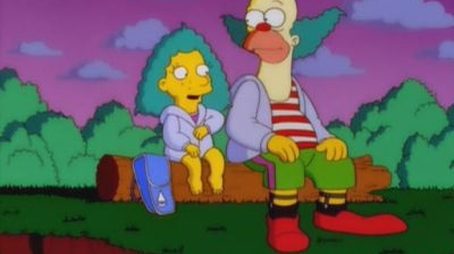
Sorry, we have not watched this yet.

Krusty takes parenting lessons from Homer when, during an outdoor book fair, a girl tells Krusty that she is his long-lost daughter from a one-night stand with a female soldier who fought during the first Gulf War.
Sorry, we have not watched this yet.